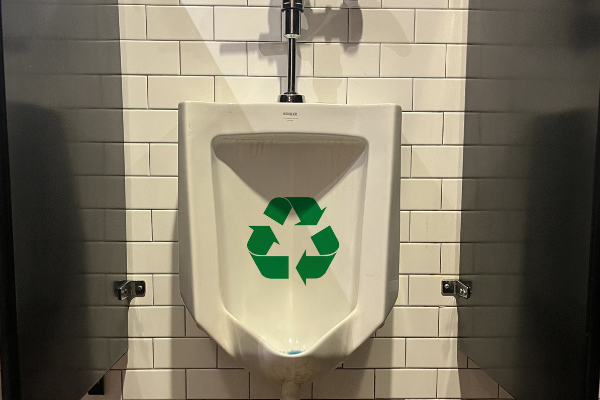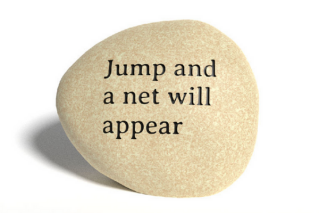
I never guessed urine would be so popular. I underestimated the interest in my recent experience with recycling urine. Some commended my efforts. Some found they fell short. Some found my efforts humorous. One sent a Dilbert cartoon. Thanks Dee. Several correctly pointed out failings.
A dime-a-day proved too little for me to continue my efforts. Some cried foul. I pay a deposit on bottles and cans in Michigan. Recycle my daily Dr. Pepper can returns exactly a dime-a-day, something I do conscientiously. The blend of 23 flavors provides a yuck factor to some. Not everyone is a fan. For me the only yuck factor is the occasional mess caused by residual liquid when schlepping the cans to the grocery store or experienced while feeding them to the recycling machine. The yuck factor and effort are minor compared to urine, with the 6-8 times per day manually capturing urine and the daily application in the yard.
Other correctly questioned my premise that recycling should be value added since recycling of other materials is something I pay for. There is no immediate monetary value created for me for my household recycling. My can recycling just gets my deposit back. It doesn’t truly pay me. There is no immediate return for most of the recycling I do. I balked at continuing urine recycling due to a lack of return, yet my participation in curbside recycling actually costs me money. I am holding urine to a different standard.
Before diving in, why we recycle warrants some discussion. Recycling is now part of our general solid waste handling. Placing something into either my trash or recycling bin keeps trash out of the environment. I am, by and large, perfectly happy when something ends up entombed in my local landfill. I am a little happier thinking things stay in use through recycling. My primary motivation for recycling is the avoidance of entombing valuable materials, reducing overall societal waste.
Materials I recycle are given away. Any profits made from the material placed in my recycle bin don’t directly flow to me, they flow to Republic Industries, the service used by my local municipality. I actually pay to have recycling picked up. Republic generates revenue from charging me for pick-up and sales of the recyclate. Their costs include transportation, sorting, cost of sales, and disposal of the waste unfit for recycling. The Republic annual report shows less than 4% of their total revenue comes from sales of recyclate. More than 76% come from collection. $187 per ton was the 2021 average sale price for recycled materials, excluding glass and organics, up from $96 in 2020. That is a big deal. It signals the market for recycled materials is improving. Republic reaps a $22 million boost in revenue for every $10/ton increase in the price paid for recyclate. There are some less good signals. 80% of what was recycled was paper. Our societal focus is on plastics, yet recycling there is still lagging. $187 per ton may sound big, but it is less than a dime-a-pound.
Urine recycling generates a small economic benefit directly to me. Attempting to value something I give away is admittedly silly. I can look downstream at the prices those materials command to make me feel a bit better about my efforts. It is a bit of a downer. Most of what I recycle is worth less than a day’s urine. The thick weekend newspaper is only worth a penny as it exits the MRF, about the same as a steel can, 3-4 copies of C&E News, and a PET water bottle. The wad of bags deposited at the grocery store are worth about the same. Were it not for the deposit, aluminum cans are worth 3-4¢. Glass is pretty much worthless. Clear HDPE milk jugs are most valuable at 9¢, now more valued than virgin production. The value in the recycle bin as I drag it to the street every two weeks is not far removed from the value two weeks of urine.
Recycling and trash are two nearly identical bins at my house. The effort is nearly the same irrespective of which bin is used. I put more effort into recycling films, but it is still a small incremental effort. For urine recycling to work, it has to be reduced to a small incremental effort. Imagining the infrastructure for large-scale recycling is difficult. I can’t imagine dragging a urine bin to the street with my recycle bin, but I can’t imagine a separate urine sewer system either. My urine recycling efforts were too much extra effort for me. They also failed to really put the nutrients back into food production. A lot of work and still flawed.
Additional analysis has not swayed my opinion. My manual intensive urine recycling effort is not a long-term fix. Urine will remain on the list of recyclables that I don’t recycle, in spite of the value.

Mark Jones is a frequent speaker at a variety of industry events on industry related topics. He is a long-time supporter of ACS Industry Member Programs providing both written and webinar content, supporting the CTO Summits, and as a former member of Corporation Associates. He currently serves on the ACS Committee on Public Relations and Communications and the Chemical Heritage Landmark Committee. He is a member and former chair of the Chemical Sciences Roundtable, a standing roundtable of the National Academies of Sciences, Engineering, and Medicine. Mark is the author of over a dozen U.S. patents and numerous publications.
The opinions expressed in this article are the author's own and do not necessarily reflect the view of their employer or the American Chemical Society.










